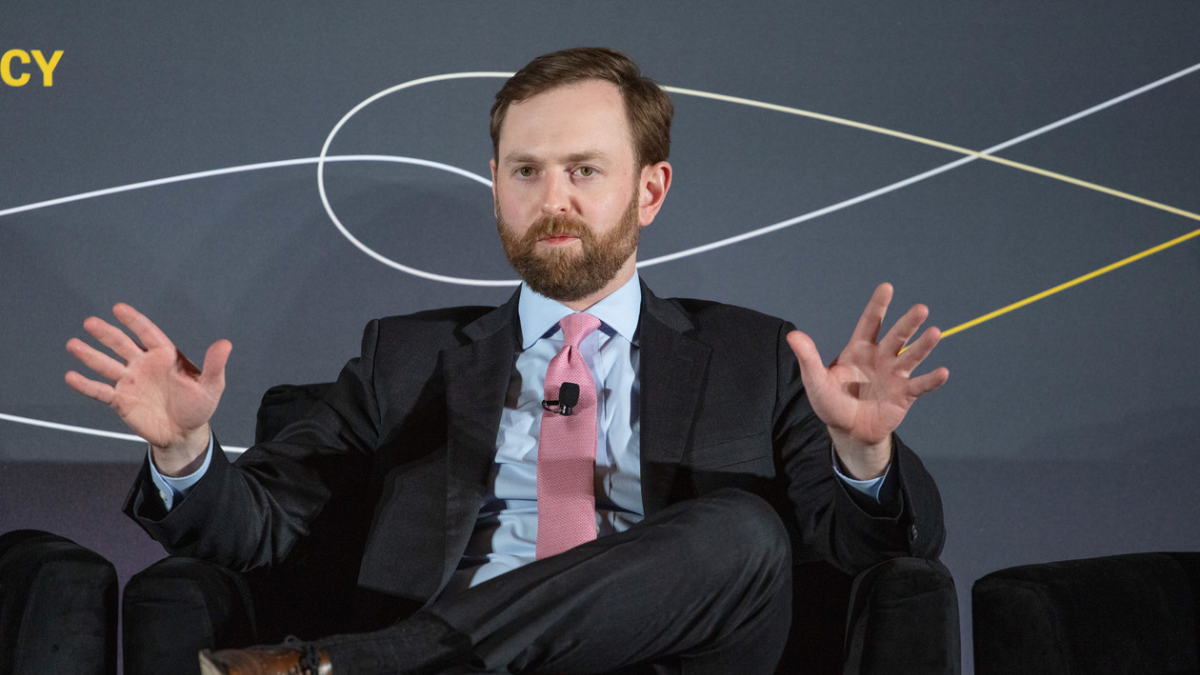FTC Outlines Focus on Parental Rights at Child Online Safety Workshop
Cristiano Lima-Strong / Jun 4, 2025
Federal Trade Commission Chair Andrew Ferguson photographed at the 2022 Knight Foundation INFORMED Conference in Miami, Florida. (Patrick Farrell/Knight Foundation)
The US Federal Trade Commission’s Republican leadership offered an expansive view of how much control parents should have over children’s data and online activity at an agency workshop on Wednesday, remarks that likely will foreshadow their enforcement priorities on the issue.
The event, “The Attention Economy: How Big Tech Firms Exploit Children and Hurt Families,” marked the agency’s first major summit on the topic of child online safety since Chair Andrew Ferguson, an appointee of President Donald Trump, took over the reins in January.
The workshop featured remarks from top FTC officials, including Ferguson and Commissioners Melissa Holyoak and Mark Meador; lawmakers active on the issue, such as Sen. Marsha Blackburn (R-TN) and Katie Britt (R-AL); and several conservative advocacy groups.
Here are five key takeaways from the session:
Parental rights front and center
Ferguson kicked off the event with opening remarks that emphasized his desire to give parents a greater ability to keep tabs on and exert control over how their children are engaging with digital platforms, as well as what happens with their personal information on the internet.
“Our laws governing online privacy for children are not just aimed at protecting children,” he said. “They are or ought to be aimed at assisting parents in the exercise of their right to exert meaningful control over their children's activities online and the data generated by those activities.”
Ferguson suggested that some of those goals could be achieved under the agency’s existing authority, including by enforcing the Children's Online Privacy Protection Act, or COPPA, the nation’s federal data privacy law for children. To that end, he highlighted the agency’s revised rule on COPPA, which Ferguson noted requires “an additional parental opt-in consent requirement before an operator can share children's personal information to that end.”
He also referenced the agency’s settlement last year with digital platform NGL over allegations the company used misleading tactics to market itself to kids, unbeknownst to their parents.
A call to action for Congress
Ferguson called on Congress to pass additional child online safety legislation that emphasized parental rights, offering a list of potential policy recommendations.
“Congress should pass privacy legislation requiring that any smartphone and operating systems, as well as online services, give parents the tool they need to carry out their preferred approach to supervising, protecting and raising their children online,” he said.
Ferguson added that parents “should be able to decide whether their children can have a personal account on a social media platform, on an online gaming system or on a streaming service platform … to see what messages their children are sending or receiving on a particular service, and, most importantly, … to erase any trace left by their children on these platforms at all levels of granularity, from individual messages to entire accounts.”
In a few turns of phrase that channeled “culture war” terminology, Ferguson lamented the “weaponization of our children's data by agents of cancel culture” and suggested that being able to delete their data could prevent “public humiliation” over any “youthful indiscretion online.”
Ferguson: COPPA ‘needs To be reformed’
While Ferguson outlined how the agency can use COPPA to protect kids online, he also said the 1998 law sorely needs an update, particularly when it comes to when companies must obtain consent from parents to collect or access children’s data.
Under COPPA, a company is required to obtain “verifiable parental consent” before collecting data from children under 13 if they have “actual knowledge” it’s providing service to a child. Child safety critics have long argued that the standard lets companies off the hook by allowing them to feign ignorance or turn a blind eye to the presence of children on their platforms.
Ferguson echoed those concerns, saying that COPPA “needs to be reformed” because it “provides little to no barrier to access” for kids to join digital platforms and “does not advance the principle of parental consent that Congress had in mind when it adopted it in 1998.”
Enforcing TAKE IT DOWN a priority
Numerous FTC officials said the agency plans to aggressively enforce the TAKE IT DOWN Act. The law, which was championed by First Lady Melania Trump and signed by President Trump last month, criminalizes the distribution of non-consensual deepfakes and requires that platforms remove any such videos within 48 hours of being notified by a victim.
“It’s a big task remaining before us, but I know we’re really committed to playing our part,” said Kate White, deputy director of the FTC’s Bureau of Consumer Protection.
“We're very excited to take on this challenge, which we are approaching with great care and thoughtfulness,” added Ferguson, who recently met with the Department of Homeland Security to discuss how they collaborate on enforcement of the law.
FTC overlap with EU?
While congressional Republicans have railed against Ferguson’s predecessor, Democrat Lina Khan, for working with her European counterparts to target American tech companies, the new chair notably said he saw child online safety as an area of potential collaboration with Europe.
“I'm glad to see that we have both a strong focus on protecting kids, and I hope we can find ways to work together on this issue,” said Ferguson, who added that he recently discussed the issue with European Commission Executive Vice-President Henna Virkkunen.
Authors
